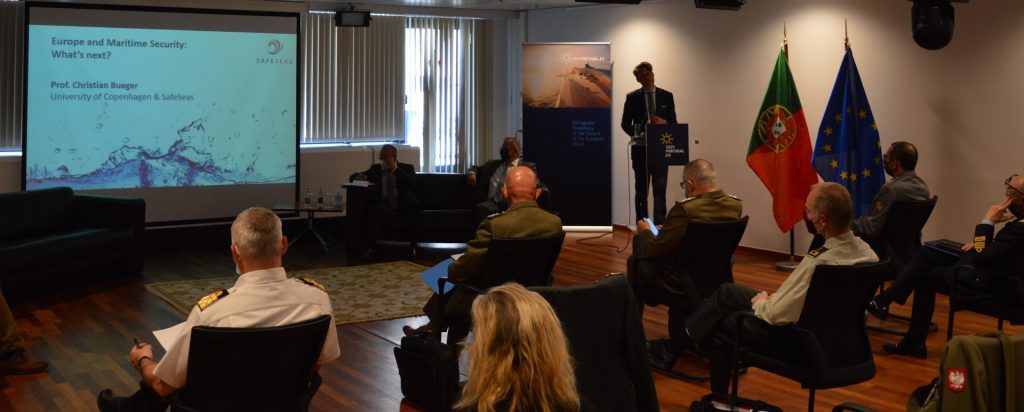On May 4th I am giving a guest lecture at the Department of Political Science at the University of Bologna. In the lecture I will review the European Union’s approach to maritime security based on a forthcoming paper co-authored with Tim Edmunds. The paper draws on our research on maritime security strategy as well as a talk on the EU’s maritime security strategy I gave last year at the EU Military Committee. Further information and location here.
Tag Archives: maritime security strategy
How to improve maritime security in the Gulf of Guinea
On April 27 and 28 two key events of our collective research project AMARIS (Analyzing Maritime Security in Ghana) will take place in Accra. On day one we will have an internal meeting and review the set of current drafts for academic articles and how to drive them to publication. Papers, include a discussion of the problem of inter-agency coordination, the effect of maritime security strategies and on the impact that the concept of maritime security had for governance and organization of the maritime sector in Ghana.
On day two, the AMARIS team will present our key policy insights to the major stakeholders and agencies in Ghana. We will investigate how the maritime threat landscape has been evolving, what the key hurdles are in creating effective maritime security governance, and what best practices can ensure the effective delivery of capacity building. The event is hosted by the Center for Maritime Law and Security Africa one of the member institutions of AMARIS.
What is the state of the EU’s maritime security strategy?
The Portuguese presidency of the Council of the EU has made quite some efforts to lift maritime security higher on the agenda of the EU. To reflect on the state of EU maritime security provision, Portugal organized a mini away day of the EU Military Committee on 2 June 2021.

I had the pleasure to speak at the event alongside the keynote speaker Mr Kitack Lim, Secretary General of the International Maritime Organization, and the Portuguese Special Representative for Maritime Security in the Gulf of Guinea.
In my talk I reviewed the current strategy choices of the EU. I highlighted a number of current challenges, which includes in what kind of command structures the EU operates abroad to address piracy and other blue crimes, the relationship to NATO’s work on maritime security, and the issues linked to the Brexit process.
I also argued for the need to pay more attention to arising matters, including the environmental security agenda at sea, the consequences of climate change, and the importance of subsea data cables.
I concluded in suggesting to revisit the EU Maritime Security Strategy and calling for an open dialogue with NATO on the matter.
New research project AMARIS
Our new research project Analyzing Maritime Insecurity in Ghana (AMARIS) is launching. The project which is part of the SafeSeas family, investigates the inter-linkage between blue crimes in Ghana’s waters, maritime security governance in the country, including a case study of the maritime security strategy, as well as the impact of external capacity building assistance. The project is funded by the Danish International Development Agency DANIDA and is a cooperation between the University of Copenhagen, CEMLAWS Africa, the Kofi Annan International Peacekeeping Training Centre in Accra, and the University of Ghana. It will run until 2022. Part of the project is a training school for junior maritime security analysts from West Africa. More information will be available soon on the SafeSeas website.